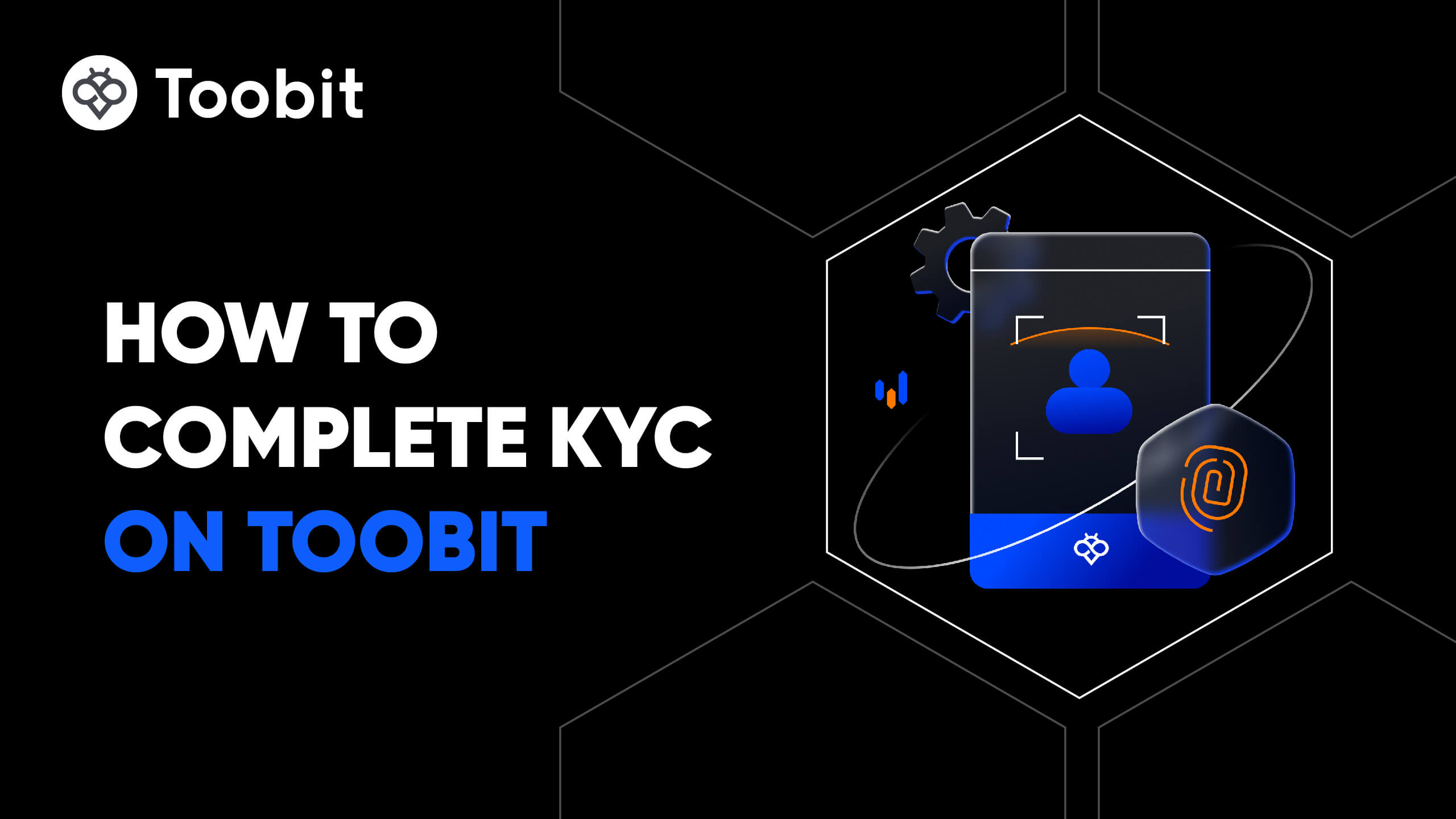Preço de Cosmos
ATOMInformações do mercado de Cosmos
Preço ao vivo de Cosmos hoje em USD
Quanto vale 1 ATOM em ?
Sobre Cosmos(ATOM)
Histórico de preços de Cosmos
Por que o preço de Cosmos sempre oscila?
Quais fatores afetam o desempenho dos preços de Cosmos?
Preços globais de Cosmos
Como comprar Cosmos
Junte-se ao Toobit agora!
Cadastre-se na Toobit com seu e-mail/número de celular e país de residência e crie uma senha forte para proteger sua conta.
Verifique sua identidade
Complete a verificação de identidade enviando seus dados pessoais e um documento de identificação com foto válido.
Adicione um método de pagamento e compre Cosmos (ATOM)
Adicione um cartão de crédito/débito ou conta bancária após verificar sua conta Toobit. Use várias opções de pagamento para comprar Cosmos na Toobit.
Negocie contratos futuros perpétuos de ATOM
Após se cadastrar na Toobit e comprar USDT ou tokens ATOM, você pode começar a fazer trade de Derivatives, incluindo futuros ATOM e Margin trading para aumentar sua renda.
Participe do Copy Trading de ATOM com Traders Líderes
Após se registrar na Toobit e comprar com sucesso USDT ou tokens ATOM, você também pode começar o copy trading seguindo Traders Líderes.
Onde posso comprar Cosmos?
Compre cripto no app da Toobit
Cadastre-se em poucos minutos para comprar cripto via cartão de crédito ou transferência bancária.
Negocie na Toobit
Deposite suas criptomoedas na Toobit e aproveite alta liquidez e taxas de negociação baixas.
Seção de vídeo — verificação rápida, negociação rápida

Como concluir a identificação na Toobit e se proteger contra fraudes
- 1.Entre na sua conta Toobit.
- 2.Se você é novo na Toobit, assista ao nosso tutorial sobre como criar uma conta.
- 3.Clique no ícone de perfil no canto superior direito da barra de navegação e depois toque na página de Identificação.
Perguntas Frequentes Sobre Cosmos (ATOM)
Como funciona o Cosmos?
A rede Cosmos é construída sobre um sistema modular de três camadas:- Camada de Aplicação: Lida com transações e atualiza o estado da rede.- Camada de Rede: Facilita a comunicação entre diferentes transações e blockchains.- Camada de Consenso: Garante que todos os nós concordem com o estado atual da rede.O Cosmos utiliza seu conjunto de ferramentas de código aberto, incluindo o Cosmos SDK e o mecanismo de consenso Tendermint, para conectar essas camadas. Opera usando um mecanismo de Prova de Participação (PoS), onde os nós validadores são priorizados com base na quantidade de ATOM que têm em stake. Validadores verificam transações e ganham recompensas, mas qualquer comportamento malicioso resulta na perda de seus tokens em stake (slashing).Quais são os casos de uso potenciais para o Cosmos?
Cosmos (ATOM) é principalmente focado na interoperabilidade de blockchains, escalabilidade e aplicações descentralizadas (dApps).- Comunicação entre Cadeias: O protocolo de Comunicação Inter-Blockchain (IBC) permite que diferentes blockchains troquem ativos e dados de forma contínua. Isso torna o Cosmos ideal para plataformas DeFi que precisam mover tokens entre redes sem depender de exchanges centralizadas.- Soluções Empresariais: Empresas podem construir blockchains privados e públicos eficientes e personalizados que podem interagir entre si, otimizando aplicações como gestão de cadeia de suprimentos, serviços financeiros e compartilhamento de dados.- Staking e Governança: Detentores de ATOM garantem a segurança da rede e influenciam seu desenvolvimento através de votações on-chain, garantindo que o ecossistema seja dirigido pela comunidade.- Infraestrutura Escalável: O Cosmos fornece uma base altamente escalável para dApps, NFTs e projetos de jogos, permitindo que lancem seus próprios blockchains independentes, mas interoperáveis.Como o Cosmos facilita a interação e movimentação de recursos não monetários entre diferentes blockchains?
O Cosmos resolve o problema da interoperabilidade através de seu inovador protocolo de Comunicação Inter-Blockchain (IBC). O IBC é um protocolo padronizado e sem confiança que permite a comunicação e movimentação contínua de recursos tanto monetários quanto não monetários (como dados ou pacotes de informação) entre diferentes blockchains dentro do ecossistema Cosmos.O Cosmos Hub, o primeiro blockchain lançado na plataforma, atua como uma ponte crítica conectando todos esses blockchains independentes. Este hub central facilita transações entre cadeias e a transferência de vários recursos, formando a espinha dorsal de todo o ecossistema. O token ATOM, como a criptomoeda nativa do Cosmos Hub, fornece a segurança econômica essencial e suporte para esta rede de cadeias interconectadas.Quais colaborações ou parcerias o Cosmos estabeleceu?
O Cosmos lidera em colaborações para melhorar a interoperabilidade e a utilidade da rede. Enquanto o ecossistema é vasto e está em constante expansão com novos projetos e integrações via IBC (mais de 120 cadeias interconectadas), existem relações notáveis em todo o cenário cripto.- Principais Plataformas: O ecossistema colaborou com projetos como Ethereum e Polkadot para explorar e melhorar a comunicação entre cadeias. A Ripple, por exemplo, lançou sua XRPL EVM Sidechain usando o Cosmos SDK.- Exchanges e Infraestrutura: Alianças estratégicas com exchanges centralizadas e provedores de staking, como a recente parceria entre Bitget e Chorus One em 2025, visam tornar o staking de ATOM mais acessível e confiável para uma base de usuários global.- Empresa & DeFi: Soluções baseadas em Cosmos são aproveitadas por instituições como Progmat (um consórcio bancário japonês) e plataformas como Ondo Chain para tokenização, e alimenta muitas plataformas DeFi que dependem de sua infraestrutura escalável.Quantas moedas Cosmos (ATOM) estão em circulação?
ATOM é uma criptomoeda inflacionária, o que significa que seu fornecimento total aumenta ao longo do tempo para pagar recompensas de staking, o que é necessário para manter a segurança da rede.- Em outubro de 2025, o fornecimento circulante de ATOM é de aproximadamente 475 milhões de moedas.- A distribuição inicial de tokens, que incluiu vendas privadas e públicas em 2017, alocou 80% do fornecimento inicial para investidores e os 20% restantes para All In Bits e a Interchain Foundation.- Ao contrário da mineração tradicional, novos tokens ATOM são ganhos através de staking.É importante notar que uma proposta recente da comunidade foi aprovada para definir a taxa mínima de inflação para ATOM em 0% (quando a proporção de staking excede um certo limite), visando melhorar as recompensas de staking e melhorar a tokenomics a longo prazo. O fornecimento exato pode continuar a flutuar com base nesta e outras decisões de governança.Qual é o mecanismo de consenso do ATOM?
O mecanismo de consenso do ATOM é o Tendermint, um renomado protocolo de consenso de Tolerância a Falhas Bizantinas (BFT) parcialmente síncrono. É valorizado por sua simplicidade, alto desempenho e responsabilidade.- Operação: O Tendermint opera com um conjunto fixo de validadores que colaboram para alcançar consenso sobre blocos de transações através de uma série de rodadas de votação lideradas por um proponente de bloco.- Segurança: A segurança é garantida através do BFT ótimo, exigindo uma supermaioria (>2/3) do poder de voto total para aprovar um bloco. Um mecanismo de bloqueio impede que validadores com menos de um terço do poder de voto comprometam a segurança da rede.- Desempenho: O protocolo oferece finalização rápida de transações, processando consistentemente milhares de transações por segundo com baixas latências de confirmação.Quais são os casos de uso para o ATOM?
Os principais casos de uso para o token ATOM são:- Segurança da Rede (Staking): ATOM é staked para garantir o Cosmos Hub, e os stakers são recompensados por sua participação.- Governança: Detentores de ATOM têm direitos de voto para influenciar o desenvolvimento e atualizações do Cosmos Hub.- Taxas de Transação: ATOM é usado para pagar taxas de transação no Cosmos Hub.- Interoperabilidade: ATOM é o hub econômico que suporta e facilita a interoperabilidade de todo o ecossistema através do protocolo de Comunicação Inter-Blockchain (IBC).Por que o preço da moeda ATOM tem flutuado tanto?
O preço da moeda ATOM tem sido sujeito a vários fatores de mercado, incluindo o sentimento geral do mercado, desenvolvimentos regulatórios e o progresso e parcerias do projeto. Além disso, debates sobre tokenomics e dinâmicas de negociação também podem contribuir para a volatilidade do preço.Quais fatores poderiam potencialmente elevar o preço da moeda ATOM no futuro?
Vários fatores-chave centrados na adoção, avanços tecnológicos e tendências de mercado poderiam elevar o preço do ATOM:- Adoção da Comunicação Inter-Blockchain (IBC): À medida que mais projetos e cadeias principais (incluindo futuras integrações com Bitcoin e Ethereum) se integram com o Cosmos e utilizam o IBC para transações entre cadeias, a demanda e utilidade para o ATOM devem aumentar.- Atualizações da Zona Econômica do ATOM (AEZ): Iniciativas como Atomic IBC, staking líquido e novos modelos de tokenomics que aumentam a acumulação de valor e utilidade do ATOM em todo o ecossistema (por exemplo, através de segurança compartilhada aprimorada) tornarão o Hub mais atraente para desenvolvedores e investidores.- Condições Gerais de Mercado: Um ciclo de mercado cripto otimista geral, impulsionado por preços crescentes do Bitcoin e aumento da adoção institucional da tecnologia blockchain, impactaria positivamente o ATOM.- Crescimento do Ecossistema: A expansão contínua do ecossistema Cosmos em setores importantes como Finanças Descentralizadas (DeFi), jogos e soluções empresariais aumentará o valor subjacente da rede que o ATOM garante.Como o staking da moeda ATOM afeta seu preço?
O staking da moeda ATOM é uma função central que apoia a segurança e operação da rede Cosmos. À medida que mais usuários participam do staking:- Redução do Fornecimento Circulante: Uma porção maior de ATOM é bloqueada em staking, o que reduz o fornecimento circulante efetivo disponível para negociação. Essa escassez pode levar a uma pressão ascendente sobre o preço.- Aumento da Segurança da Rede: Alta participação no staking se traduz em uma rede mais segura, o que aumenta a confiança dos investidores e o valor fundamental geral do ativo.Qual papel o sentimento de mercado desempenha na determinação do preço da moeda ATOM?
O sentimento de mercado, representando o humor e atitude geral dos investidores, influencia fortemente o preço da moeda ATOM, especialmente no curto prazo.- Sentimento Positivo (Otimista): Notícias de grandes atualizações (como a nova proposta de tokenomics), votos de governança bem-sucedidos, novas parcerias estratégicas ou clareza regulatória favorável podem gerar otimismo. Isso leva a um aumento na demanda e possíveis aumentos de preço.- Sentimento Negativo (Pessimista): Repressões regulatórias, violações de segurança ou quedas gerais de mercado podem desencadear medo e incerteza (FUD), levando a vendas em pânico e quedas de preço.Em essência, o sentimento de mercado atua como um acelerador, amplificando os efeitos das mudanças fundamentais e técnicas na volatilidade do preço do ATOM.Como os investidores podem avaliar o potencial de movimento futuro do preço da moeda ATOM?
Os investidores podem avaliar o movimento futuro do preço do ATOM usando uma combinação de tipos de análise:- Análise Fundamental: Avaliar a visão de longo prazo, a força da equipe de desenvolvimento, a adoção e utilidade do protocolo de Comunicação Inter-Blockchain (IBC) e o progresso de grandes atualizações como a Zona Econômica do ATOM (AEZ).- Análise Técnica: Usar indicadores de dados de mercado como Médias Móveis, RSI e MACD para identificar tendências, níveis de suporte/resistência e potenciais pontos de entrada ou saída.- Análise de Sentimento: Monitorar notícias cripto, desenvolvimentos regulatórios e discussões comunitárias para avaliar o humor coletivo dos investidores e potenciais catalisadores.Dada a volatilidade do mercado, uma abordagem bem equilibrada é crucial. Os investidores também devem focar na diversificação e implementar estratégias de gerenciamento de risco.Quais são as principais características e benefícios da moeda Cosmos?
As características e benefícios são corretamente identificados, definindo o Cosmos como um ecossistema modular e altamente conectado.Características e Tecnologias Principais:- Interoperabilidade (IBC): O protocolo central que permite a troca contínua e não custodial de dados e ativos entre blockchains heterogêneos.- Modularidade (SDK): O Cosmos SDK fornece uma estrutura para desenvolvedores construírem e lançarem rapidamente blockchains altamente personalizáveis e específicos para aplicações.- Consenso (Tendermint/CometBFT): Um mecanismo de Prova de Participação seguro e eficiente que garante finalização rápida de transações, alta capacidade de processamento e menor consumo de energia em comparação com sistemas de Prova de Trabalho.Benefícios:- Escalabilidade: Alcançada através de escalabilidade horizontal, distribuindo a carga de transações por múltiplas cadeias independentes para reduzir a congestão e melhorar a eficiência.- Personalização: Soberania total permite que as cadeias mantenham governança independente, tokens e características únicas.- Utilidade do ATOM: O token nativo ATOM é usado para staking (segurança da rede) e governança (tomada de decisões do protocolo), garantindo controle descentralizado.Quais desenvolvimentos ou atualizações os usuários devem estar cientes em relação à moeda Cosmos?
Em outubro de 2025, o Cosmos Hub tem iniciativas estratégicas em andamento para melhorar a Zona Econômica do ATOM (AEZ):- Interoperabilidade e Segurança Aprimoradas: Iniciativas como o Atomic IBC visam transações instantâneas de Comunicação Inter-Blockchain. O lançamento da Segurança Interchain é um foco principal, permitindo que cadeias menores herdem a segurança do Cosmos Hub pagando em ATOM.- Tokenomics e Liquidez: Após a aprovação da comunidade para definir a taxa mínima de inflação do ATOM em 0% (contingente à proporção de staking), os esforços estão focados em melhorar a acumulação de valor do token. Isso inclui explorar liquidez de propriedade do protocolo e staking líquido para alavancar o valor de mercado do ATOM.- Infraestrutura: Planos para implementar o Roteamento IBC permitirão que cadeias usando IBC reduzam seus custos operacionais roteando atualizações de clientes através do altamente seguro e neutro Cosmos Hub.A comunidade permanece ativa na governança, moldando as capacidades da rede e a proposta de valor a longo prazo.Quais são alguns casos de uso potenciais para a moeda Cosmos?
Cosmos (ATOM) tem múltiplos casos de uso potenciais, principalmente centrados na interoperabilidade de blockchains, escalabilidade e aplicações descentralizadas (dApps). Seu protocolo de Comunicação Inter-Blockchain (IBC) permite que diferentes blockchains se comuniquem e troquem ativos sem intermediários centralizados, tornando-o ideal para plataformas DeFi entre cadeias. Projetos podem aproveitar o Cosmos para facilitar transferências de tokens contínuas, agrupamento de liquidez e exchanges descentralizadas (DEXs) em várias redes. Isso melhora a eficiência do ecossistema de finanças descentralizadas ao reduzir a fragmentação e aumentar a liquidez.Além do DeFi, o Cosmos pode ser usado para soluções empresariais de blockchain, permitindo que empresas criem redes blockchain personalizadas e escaláveis que permaneçam interoperáveis com outras cadeias. Isso é benéfico para gestão de cadeia de suprimentos, saúde, verificação de identidade e serviços financeiros que exigem compartilhamento seguro de dados entre múltiplas entidades. Além disso, staking e governança permitem que detentores de ATOM garantam a segurança da rede e votem em atualizações importantes do protocolo, garantindo uma abordagem de desenvolvimento dirigida pela comunidade. O Cosmos também fornece uma base sólida para NFTs, jogos e projetos de metaverso, permitindo transferências de ativos entre cadeias e criando economias virtuais interconectadas. Com seu foco em interoperabilidade e desenvolvimento modular de blockchains, o Cosmos está posicionado para ser um jogador chave no futuro descentralizado.O Cosmos é um bom investimento?
Não fornecemos aconselhamento financeiro. Cosmos (ATOM) é considerado um jogador fundamental de infraestrutura no espaço das criptomoedas, focando em criar a "Internet das Blockchains". Embora sua tecnologia subjacente seja bem respeitada e o ecossistema esteja crescendo rapidamente, o mercado cripto é altamente volátil. Você deve sempre conduzir sua própria pesquisa (DYOR), avaliar os riscos, avaliar o cenário competitivo e investir apenas o que pode se dar ao luxo de perder.Como o Cosmos é diferente do Ethereum ou Polkadot?
O Cosmos se distingue por sua filosofia arquitetônica, com ênfase na soberania sobre a coesão:- vs. Ethereum: O Cosmos é uma rede de blockchains soberanos e específicos para aplicações (Zonas), oferecendo escalabilidade horizontal. O Ethereum é um único blockchain de propósito geral que hospeda muitas aplicações.- vs. Polkadot: O Polkadot utiliza uma Cadeia de Revezamento central para impor segurança unificada e compartilhada para todas as parachains conectadas. O Cosmos prioriza a independência; cada Zona geralmente se segura e se conecta sem permissão via o protocolo de Comunicação Inter-Blockchain (IBC), promovendo soberania total.Como os investidores podem avaliar o potencial movimento futuro do preço da moeda ATOM?
Os investidores podem avaliar o potencial movimento futuro do preço da moeda ATOM analisando indicadores técnicos, realizando uma análise fundamental do projeto e sua equipe, monitorando as tendências de mercado e mantendo-se informados sobre eventos e desenvolvimentos futuros dentro do ecossistema Cosmos. Também é importante diversificar o portfólio de investimentos e praticar estratégias de gestão de risco.Quais são as principais características e benefícios da moeda Cosmos?
Algumas características e benefícios principais da moeda Cosmos incluem:Interoperabilidade: Cosmos permite que diferentes blockchains se comuniquem e transacionem entre si, criando um ecossistema mais conectado e escalável.Escalabilidade: Cosmos utiliza uma arquitetura modular que permite fácil escalonamento da rede à medida que mais usuários e aplicações se juntam.Governança: Os detentores de moedas Cosmos têm a capacidade de participar da governança da rede e propor e votar em mudanças no protocolo.Segurança: O consenso Tendermint fornece uma maneira segura e eficiente de validar transações na rede Cosmos.Quais são alguns casos de uso potenciais para a moeda Cosmos?
Alguns casos de uso potenciais para a moeda Cosmos incluem:Aplicações de finanças descentralizadas (DeFi): Cosmos pode ser usado para construir exchanges descentralizadas, plataformas de empréstimo e outros produtos financeiros.Transferências de ativos entre cadeias: Cosmos pode facilitar a transferência de ativos entre diferentes blockchains, tornando mais fácil para os usuários moverem ativos entre diferentes redes.Jogos: Cosmos pode ser usado para criar jogos baseados em blockchain que aproveitam os recursos de escalabilidade e interoperabilidade da rede.Quais desenvolvimentos ou atualizações os usuários devem estar cientes em relação à moeda Cosmos?
Os usuários devem ficar atentos aos próximos desenvolvimentos, como a atualização Stargate, que introduzirá novas funcionalidades e melhorias na rede Cosmos. Além disso, os usuários devem se manter informados sobre novas parcerias ou colaborações que a Cosmos possa anunciar, pois podem impactar o valor futuro e a utilidade da moeda Cosmos.



